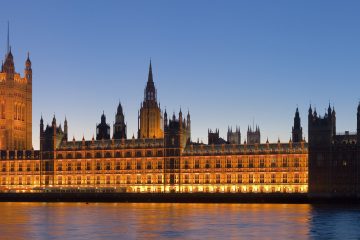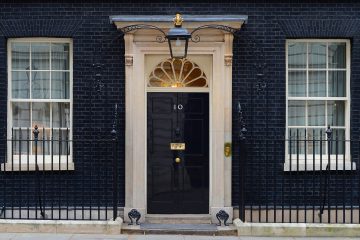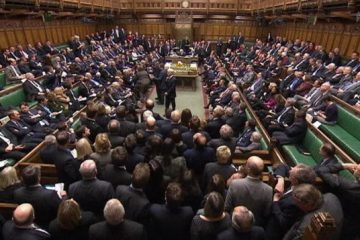
Inclusive Democracy: Labour Party’s Election Manifesto for Reducing the Voting Age to 16
The prevailing sentiment among most Britons towards Labour’s proposed initiative to extend voting rights to 16-year-olds is scepticism. However, the precedents set by nations such as Scotland, Brazil, and Austria, where the voting age has been lowered to 16, challenge these apprehensions. Contrary to popular belief, implementing such a policy could cultivate a more politically active and engaged citizenry in their later years. During his election campaign, Labour leader Keir Starmer endorsed reducing the legal voting age from 18 to 16, indicating a potential inclusion of this policy in the party’s manifesto. The Labour party has deliberated the matter for more than a year, considering its implementation in Scotland and Wales for local and devolved parliamentary elections. In his statement, …

Pro-Innovation and Pro-Ethics? Threading the Needle in UK AI Policy
Throughout the recent political turmoil in Downing Street, the civil service has continued to develop policy on artificial intelligence, including by developing its 2021 National AI Strategy through a more detailed policy paper (titled ‘Establishing a pro-innovation approach to regulating AI’) that gives further guidance about the intended approach. This policy paper is of domestic and international importance, as the new Prime Minister Rishi Sunak looks to capitalise on the UK’s AI potential at a time when governments worldwide grapple with how to regulate the emerging technology. Notably, the tone of the paper, as introduced by then-ministers Nadine Dorres and Kwasi Kwarteng, emphasises a ‘proportionate, light-touch and forward-looking’ attitude that looks to ‘unleash growth and innovation’ in the field. The framing of an …

“Laters, baby!”: How the British Prime Ministers’ discourse of delay turned Indyref2 into a peripheral issue
Scotland held a vote on independence on 18 September 2014, with 55 percent of the voters rejecting leaving the United Kingdom. Yet, the issue was thrust back into the spotlight in 2016, when the UK voted to withdraw from the EU, with repeated calls for a second Scottish plebiscite growing louder ever since. As in 2014, the generally accepted (albeit not universal) position has been that Westminster’s approval is needed to put a referendum on Scottish independence beyond legal doubt. The two British Prime Ministers (PMs) who held office during this time (2016–2021), Theresa May and Boris Johnson, consistently reiterated their opposition to another referendum and ruled out granting any such consent. In doing so, they employed various discourse strategies …
Brexit and the Future of India-UK Ties
The impact of Brexit on India depends upon the general election of the UK scheduled for December 12, 2019. With Conservatives in power, Brexit seems to bring opportunities for India on many fronts. However, if the Labour Party comes into power, it may reverse that impact. The reason is the varied ideologies of both the parties concerning India. Historically, Indian National Congress (INC) had taken the Conservative Party with a pinch of salt. The racial slurs by Prime Minister Winston Churchill of the Conservative Party on the Bengal famine of 1943-44 and his remarks during the debate of the Independence Bill in British Parliament in 1947 had turned Indian Prime Minister Jawaharlal Nehru and the INC against the Conservatives. However, …

Brexit has accelerated, not caused, government’s weakening power over parliament
In Britain, the government dominates parliament. This claim is a staple of “textbook” descriptions of British politics. Academic literature also suggests the British government’s power over parliament is unusual in international terms. As a result, the government’s struggle to secure parliament’s support for its Brexit deal has been widely seen as evidence that Brexit has challenged – or even overturned – this conventional wisdom. However, in this blog post we argue that recent events can be better understood as an acceleration of pre-existing trends in Britain’s political institutions and political parties that have weakened government’s grip over parliament. The Brexit process may have challenged the government’s ability to control parliament, but it was pushing at an open door. Three institutional …

Be vigilant of the UK government’s attempts to increase its surveillance powers
Cybersecurity has become a major concern for governments, companies and citizens, as some of their most sensitive information is routinely stored and communicated online. Rogue attackers can steal confidential information or corrupt their databases, potentially leading to critical security incidents ranging from reputational damages and economic losses to national security risks. The threat, however, works in two ways. While companies and governments are concerned about being targets of digital infiltration, they have used these technologies to obtain extensive information from common citizens for crime and terrorism prevention or commercial purposes. Collecting geolocationdata and screening social networks are now common practices, relatively easy to carry out due to the embedded features of modern devices. For years, many surveillance practices were conducted …

The optics of a cabinet reshuffle: PR vs reality
Reshuffles are a chance to revive the fortunes of a Prime Minister by changing the faces of their Cabinet and Government. January’s offered much but delivered less; the occupants of key Cabinet positions remained in place after all. May’s big beasts stood their ground, seemingly immovable; Justine Greening was the most prominent and the only woman to exit the Cabinet. The optics of Theresa May’s reshuffle became, at this point, about increasing diversity. But this neither told the real diversity story of the reshuffle, nor made an adequate case for diversity in the executive. Increasing diversity in their Cabinets appears to be of increasing importance to leaders and has been shown to have beneficial impacts on both policy outcomes and …

Brexit from the back benches: have the whips become the straw men of British politics?
The liberal philosopher A.C. Grayling is one of the foremost opponents of Brexit. No doubt he salutes the bravery of those Tory MPs dubbed ‘mutineers’ by the Daily Telegraph when they brought about Theresa May’s first Commons defeat as they supported an amendment to her EU withdrawal bill to give Parliament a legal guarantee of a vote on the final Brexit deal”. These Tory MPs defied the so-called ‘party whip’. Whips are MPs appointed by parties in Parliament to do what they can to make sure party members vote the way the party wants. Grayling is not a fan of the whipping system in general: he regards whipping as ‘undemocratic’, and he connects it to increasing levels of mistrust in MPs and …








